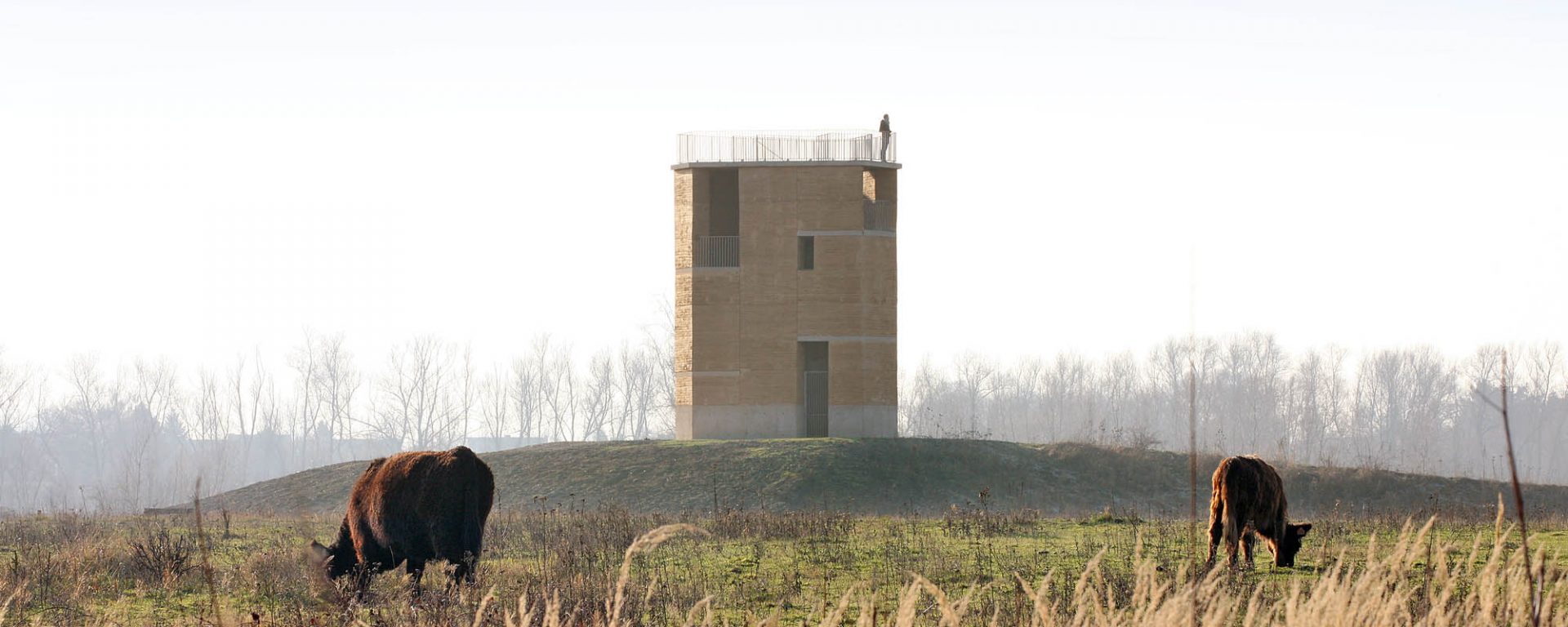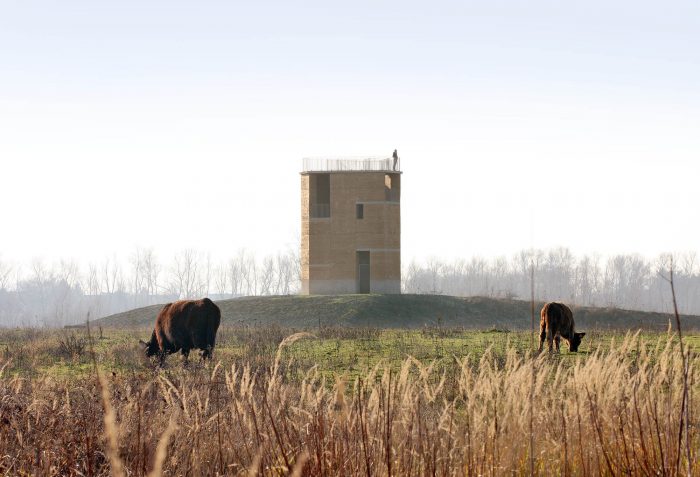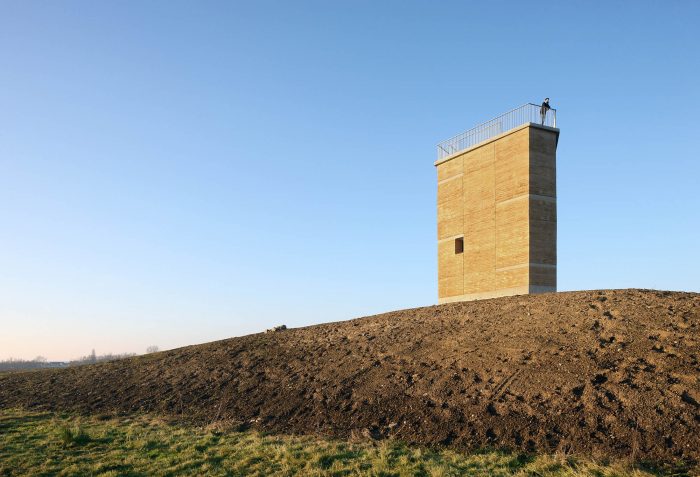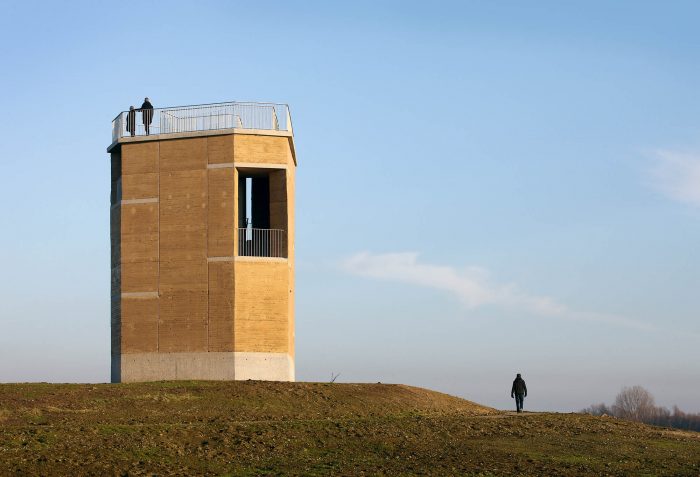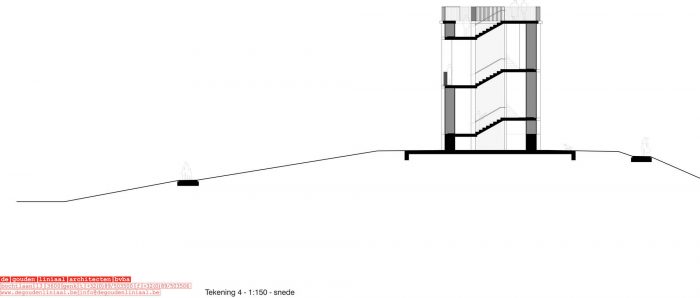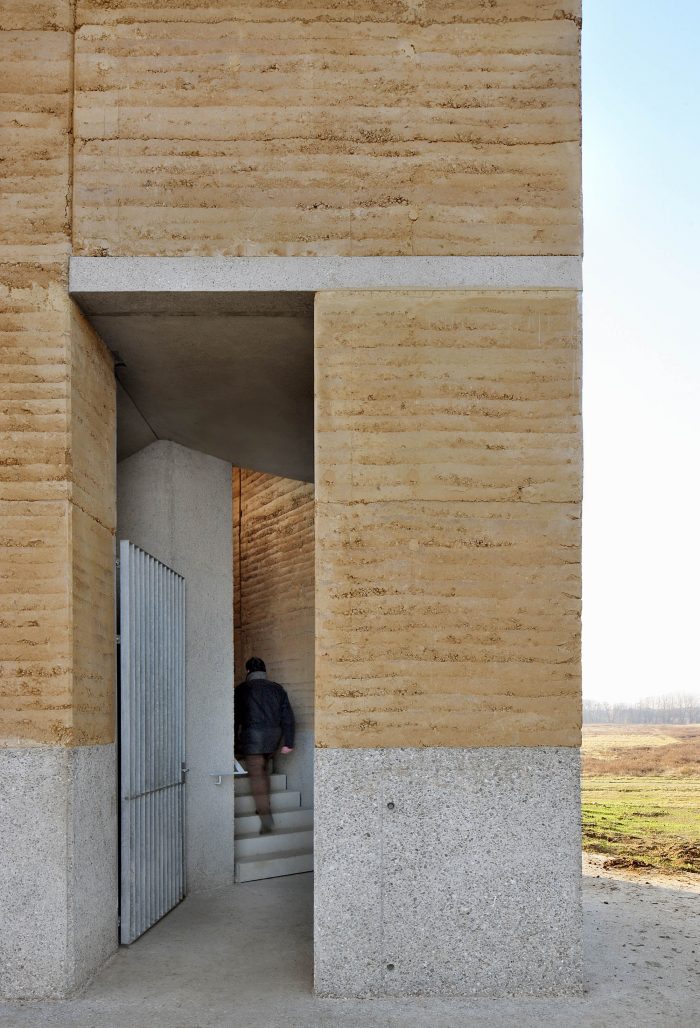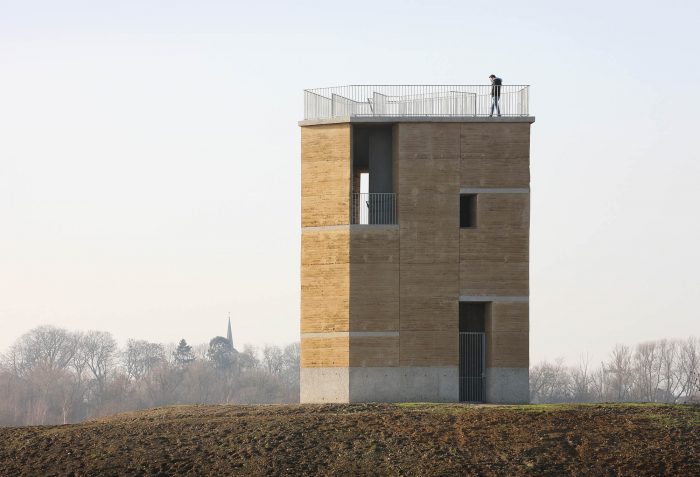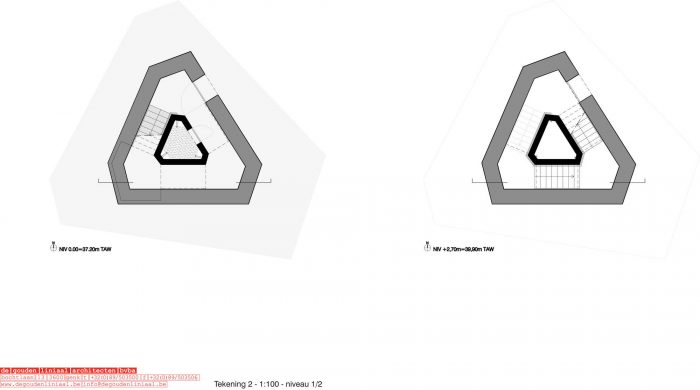内根诺德是一个前砂石开采区(约150公顷),现在被改造成了一个名为马斯河公园(Maasvalley Riverpark)的自然保护区,面积为2500公顷,位于马斯河形成的比利时-荷兰边境两侧。重新开发也为河流提供了更多的空间,形成了一个泛滥的区域。
Negenoord is a former gravel extraction area (about 150ha), which is now transformed to a nature reserve called Maasvalley Riverpark, 2500 hectares in size and located on both sides of the Belgium-Netherlands border which is formed by the Maas river. The redevelopment also gives more space for the river creating a flooding area.
我们这个项目的客户是一个政府组织,他们组织了所有以前的砂石开采区的再开发。Negenoord的重建概念集中在自发的自然发展,自然教育,但也是娱乐用途。 为了充分体验该地区,必须在一个小山丘上建造一个小型的观察塔,位于该地区的中间,并创建了一个防止冬季洪水的塔。
Our client for this project is a government organization who organizes the redevelopment of all former gravel extraction areas. The concept for the redevelopment of Negenoord focused on spontaneous nature development, natural education but also recreational use. In order to fully experience the area, a small observation tower had to be built on a small hill, located in the middle of the area and created to keep the tower safe from winter floods.
我们利用从马斯地区挖掘出来的当地材料:土、粘土和砾石,制作了一座建筑。外墙采用了夯土建筑技术。这些墙体的表面积会慢慢被侵蚀,所以一段时间后,砾石会变得明显。 在内部,一个带有楼梯的中央核心是由混凝土制成的,经过喷砂处理后,砾石也会显现出来。通过它的物质化,建筑告诉我们它所处的位置,并与环境紧密相连。
We created a building that was crafted with the local materials excavated from the Maas area: earth, clay and gravel. External walls were created with the rammed earth building technique. The surface area of these walls will slowly erode, so the gravel will become visible after a while. Inside, a central core with stairs is made out of concrete, which is sandblasted to show the gravel as well. Through its materialization, the building tells us about the location it’s built. and becomes strongly anchored in its environment.
爬上山顶的过程被构思成不同的顺序。在顶部3个楼梯的每一个落脚点上,都有不同的景观向环境开放。三角形的形状和切角的位置是由这些景观决定的。
The climb to the top is conceived in different sequences. On each of the landings of the top 3 staircases a different view opens up to the environment. The triangular shape and the position of the cut-off corners was determined by these views.
夯土建筑技术有几千年的历史,在全世界都能找到。土壤湿土被分层倒入15厘米的模板中,并被机械压缩到12厘米。砂、粘土和碎石的正确混合,使其适合建造承重墙。
The rammed earth building technique is thousands of years old and can be found in the whole world. Soil-damp earth gets poured in layers of 15cm into a formwork and is compressed mechanically to 12cm. The correct mixture of sand, clay and gravel makes it suitable for building load-bearing walls.
该塔是比荷卢地区第一座公共土楼。”建筑技术的标准化仍在发展中。目前,还没有标准,因此很难描述该技术在公共项目中的应用。
The tower is the first public earthen building in the Benelux region. the standardization of the building technique is still under development. For the moment, there are no standards yet and that makes it difficult to describe the technique for use in a public project.
为了保证施工质量,设计团队得到了国际专家团队的支持。Cratterre/Vessières&Cie/BC Studies。土方顾问分析了不同的当地材料,尝试了不同的混合料,并对它们的压缩力、耐磨性、颜色和外观进行了评估。所选择的混合料包括20%的砾石、40%的赭石色土和40%的粘土,并用Trasslime稳定。他们还包括一份关于使用夯土施工时如何进行详细的建筑设计,以及如何组织夯土工程施工现场的报告。
To guarantee the quality of the construction, the design team was supported by an international team of experts: Cratterre/ Vessières&Cie/ BC Studies. The earth-consultants analyzed different local materials, tried different mixes and evaluated them on compression force, abrasion, color and appearance. The chosen mix consisted of 20% gravel, 40% ochre-colored earth, and 40% clay, stabilized with Trasslime. They also included a report on how to detail architectural design when building with Rammed Earth, as well as on how to organize the construction site for Rammed Earth Works.
在施工过程中,工人们接受了混合、保持混合料适当湿度、搭建模板、夯实和拆除模板的培训。每周对湿度进行现场测试,对试样进行压制力的实验室测试,以监控质量。
During construction, workers were trained in mixing, maintaining right humidity in the mix, building formwork, ramming and removing formwork. Every week, field testing of humidity, and laboratory testing of compression force on specimens were done to monitor the quality.
夯土工程历时7周。每周夯土约20立方米,从楼梯到楼梯,达到11米高。
The Rammed Earth works took 7 weeks. Around 20 m3 of rammed earth was done every week, working from staircase to staircase., to arrive at 11 meters high.
建筑师:De Gouden Liniaal Architecten
面积: 46 m²
年份:2016年
摄影:Filip Dujardin
结构工程师:Util Struktuurstudies
Rammed Earth顾问:Craterre/Vessière&Cie/BC Studies
建筑师负责人:Jan Thys, Kristof Benaets, Frank Vanden Ecker, Raf Snoekx
结构工程师:UTIL Struktuurstudies
城市:Dilsen-Stokkem
国家:比利时
Architects: De Gouden Liniaal Architecten
Area: 46 m²
Year: 2016
Photographs: Filip Dujardin
Structural Engineer:Util Struktuurstudies
Rammed Earth Consultant:Craterre/Vessière&Cie/BC Studies
Architects In Charge:Jan Thys, Kristof Benaets, Frank Vanden Ecker, Raf Snoekx
Structural Engineer:UTIL Struktuurstudies
City:Dilsen-Stokkem
Country:Belgium

